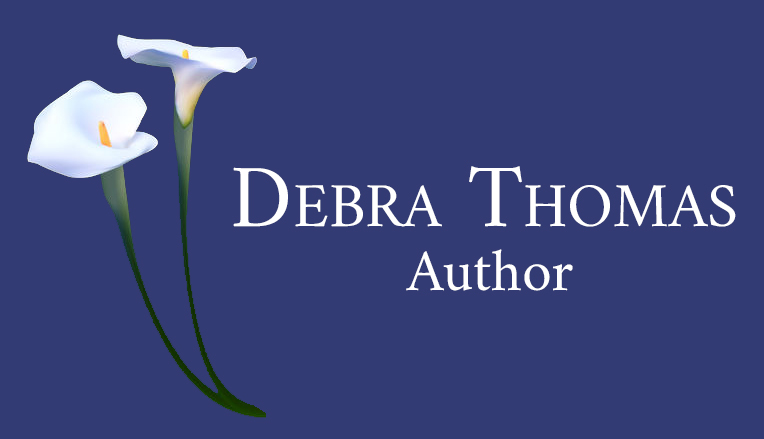The Promise of Pangaea: “Only Connect”
I am deeply grateful to Bill Wolfe of readherlikeanopenbook for giving this most personal piece of mine a home. To read this on his substack site click here:
https://billwolfe.substack.com/p/debra-thomas-on-the-promise-of-pangaea?
Or read here.
The Promise of Pangaea: “Only Connect”
“Every now and then, an unexpected moment of grace opens my heart to the certainty that we are all one—and that gives me hope.”
The last several years have certainly been a challenge, and it appears that 2024 will test our resolve even more. Yet despite the political and moral divide that has carved a huge chasm in the heart of our country and beyond, I still believe we are all connected. While I struggle to maintain this belief—particularly when differences breach borders beyond human decency and involve, in my mind, twisted thinking (what ordinary citizen needs assault weapons?)—I ultimately remind myself of E. M. Forster’s words, “Only Connect,” the often-quoted epigraph to his classic novel, Howard’s End. I realize this will be an ongoing struggle for me, especially in our precarious times that seem to be getting “precariouser and precariouser,” to tweak Alice’s words. But every now and then, an unexpected moment of grace opens my heart to the certainty that we are all one—and that gives me hope.
I plan to carry one of those breath-catching moments with me into this new year. It’s a simple one, yet powerful, as simple experiences often are.
I have a neighbor—I’ll call her Ann—a woman in her forties, who tragically lost her husband to cancer at a young age. The year after this loss, the coronavirus lockdown kept us all fairly isolated behind closed doors. However, Ann and I began a friendship of sorts as she walked her dog by my house daily at the same time that I was on the treadmill in my open garage. She’d stop on the sidewalk and we would chat, keeping a safe distance apart. Near the end of that year, during such a talk, I discovered she was an avid Trump supporter. We ended up having a heated discussion about what she saw as a “fraudulent” election and another topic that was very close to my heart—immigration. I was very upset to discover our extreme differences. Any budding friendship seemed unlikely to blossom, for how could we connect with such conflicting beliefs and values? Afterwards, we politely nodded or waved when we saw each other in passing, but that was it. Sadly, the talks stopped.
Approximately two years later, while out for a walk in my neighborhood, I saw Ann standing in her driveway, holding her dog. As I got closer, I noticed tears streaming down her face, so I approached and asked what was wrong. She told me her dog was in kidney failure, had survived two bouts of cancer, but now she knew it was time to say goodbye. I knew exactly how she felt, having gone through this just a few years before with my own beloved dog, Chloe. I remembered how difficult it was to make that decision, for one minute Chloe was clearly suffering, the next she was taking a few bites of food—still clinging to life.
As we quietly talked in Ann’s driveway, she spoke of the comfort her dog had brought after losing her husband, how snuggling up with her beloved pet in bed had seen her through endless empty nights.
I knew immediately this was too much for Ann to do alone. There was no question in my mind as to why I ran into her that day. No coincidence here. Later that afternoon, I drove Ann to her veterinarian’s office. Together we sat on a well-worn sofa in the vet’s special room and cried as Ann held her precious little dog and said goodbye.
In that moment, I felt a bond that spoke to so much more than any differences between us. If the divine spirit is love, I felt that presence. A gift of grace.
The next morning, I woke to an email from Father Richard Rohr’s Daily Meditations that seemed to speak directly to this experience. Isn’t this always the case when “something” is trying to wake us up—just in case we didn’t get it the first time? It was on this day that Father Rohr chose the words of Buddhist teacher Joanna Macy to grace his page, asking us “to meditate on our intimate coexistence.”
“You know your lives are as intricately interwoven as nerve cells in the mind of a great being . . . No stupidity or failure or cowardice can ever sever you from that living web. For that is what you are . . . rest in that knowing . . . and let every encounter be a homecoming to our true nature . . . We do not have to be particularly noble or saint-like in order to wake up to the power of our connection with other beings . . . not good necessarily, or pious, or devout—but saints in the sense of just caring for one another.”
The words that stood out for me—Let every encounter be a homecoming to our true nature . . . in the sense of just caring for one another—made it all so simple.
My quest for harmony and wholeness has always found its way into my writing, influenced by a desire to reach across differences and make connections. As an immigrant rights advocate for decades, I found myself driven to write Luz, a novel about a young Mexican woman’s journey across the border as she searches for her missing father, a migrant farm worker. After Luz, I began working on a novel about a fragmented family, once connected but torn apart: A father who abandoned his children. A frustrated mother and rebellious daughter, who clash over misunderstandings. I wanted to give this family an opportunity to reconnect despite their differences. For me, this family represented our divided humanity: divided as a human race and divided in the view of what it is to be humane.
My novel’s working title was The Promise of Pangaea, for I found the metaphor of Pangaea to be ideal. Pangaea is the super-continent associated with a theory that all continents were originally connected as one large landmass, until the shifting of the Earth’s surface over millions of years caused Pangaea to split into our current separate continents. As I pondered this image, it occurred to me that since Earth is a globe—a sphere—the drifting continents that were initially pulling apart, at some point, begin gliding toward each other in a new direction, perhaps to reconnect one day in a new form. Thus—The Promise of Pangaea.
I decided to weave this metaphor of Pangaea throughout the novel with a family, once connected, pulled apart by differences, now struggling to reconnect. After I completed the novel, my publisher questioned using Pangaea in the title, concerned that readers wouldn’t be familiar with its meaning or pronunciation. At first, I was hesitant, for the concept behind The Promise of Pangaea was the heart of the novel.
Or so I thought—until we settled on the title: Josie and Vic.
Josie and Vic were the main characters in the novel, a sister and brother with a special bond, who, through moments of “just caring for one another,” set their divided family on a path to reconnect despite misunderstandings and past grudges. Josie and Vic was, in fact, the better title, for it focused on the power of that simple connection between two people.
Isn’t that what it really comes down to in the end—like my neighbor Ann and me and our grace-filled encounter?
If we can all “only connect” on a level that transcends the source of our divisions, perhaps we can begin to “let every encounter become a homecoming to our true nature.” While this is sure to be an ongoing struggle as controversial issues arise in 2024 and beyond, at least it’s something to carry with us wherever we go—even on a simple walk in our neighborhood.
- Richard Rohr’s Daily Meditations. From the Center for Action and Contemplation. https://cac.org/daily-meditations/part-of-a-living-web-2022-07-08/
- Joanna Macy’s website. https://www.joannamacy.net/main
https://billwolfe.substack.com/p/debra-thomas-on-the-promise-of-pangaea?



